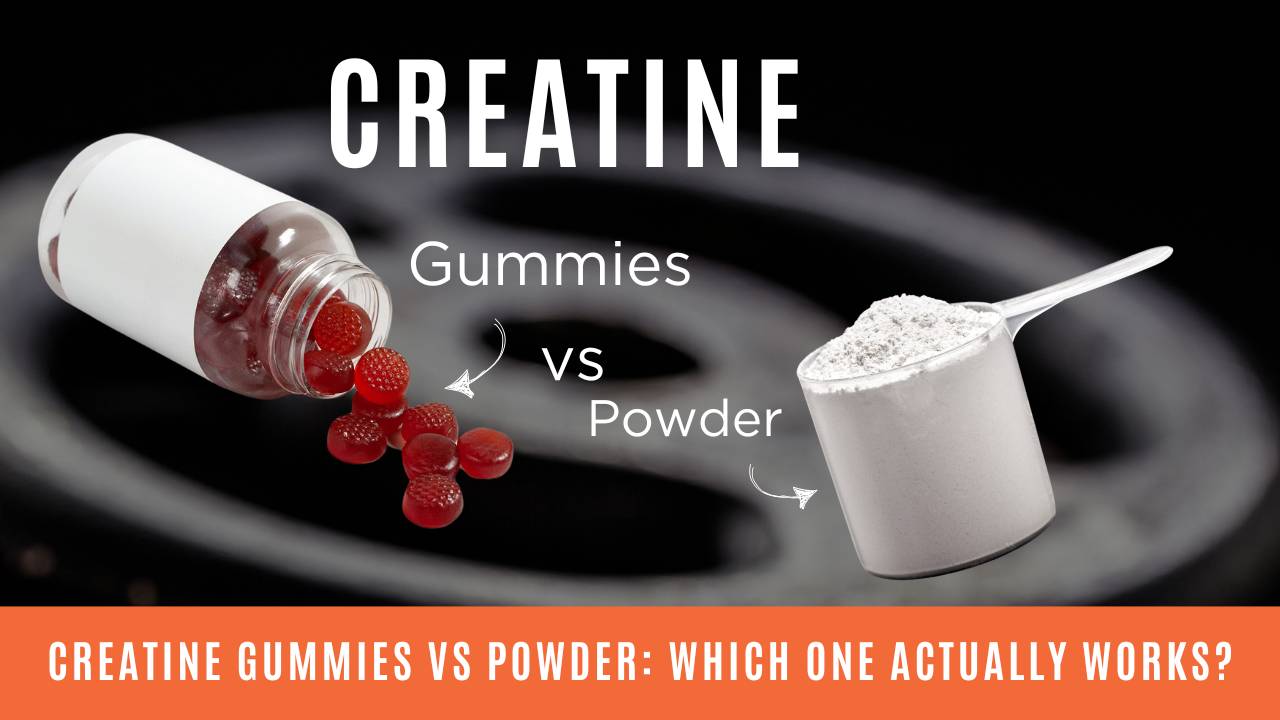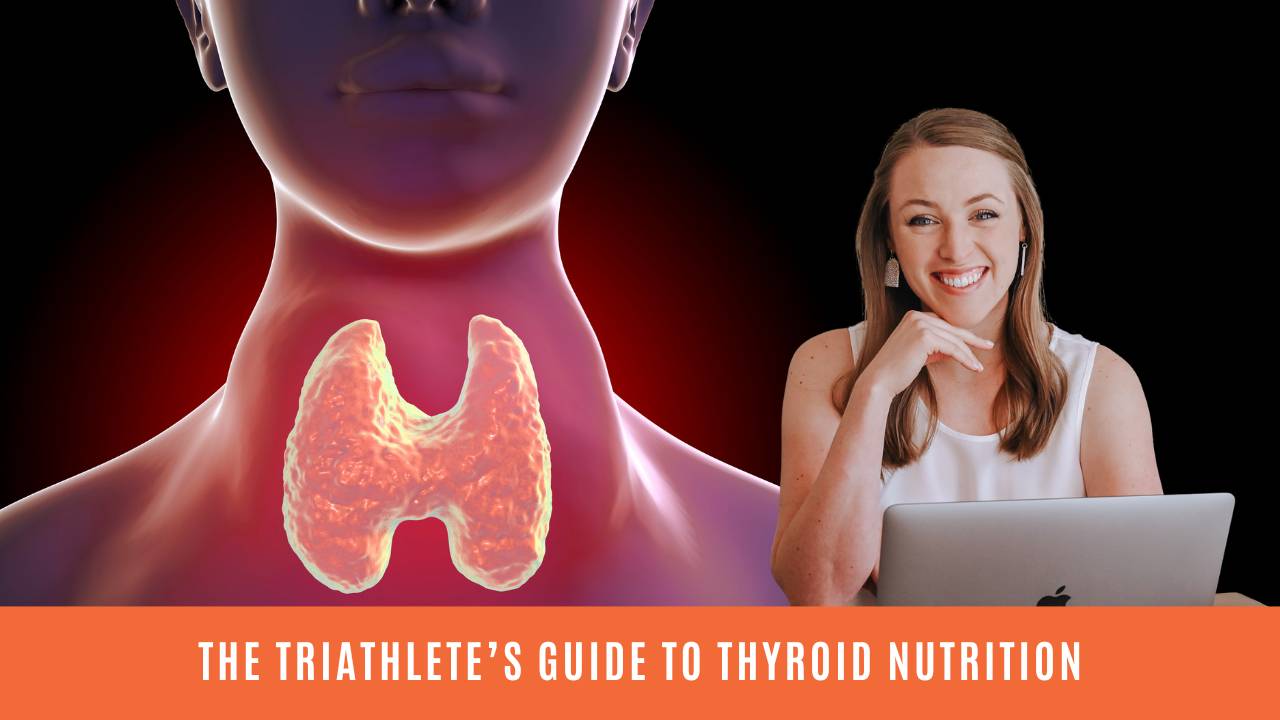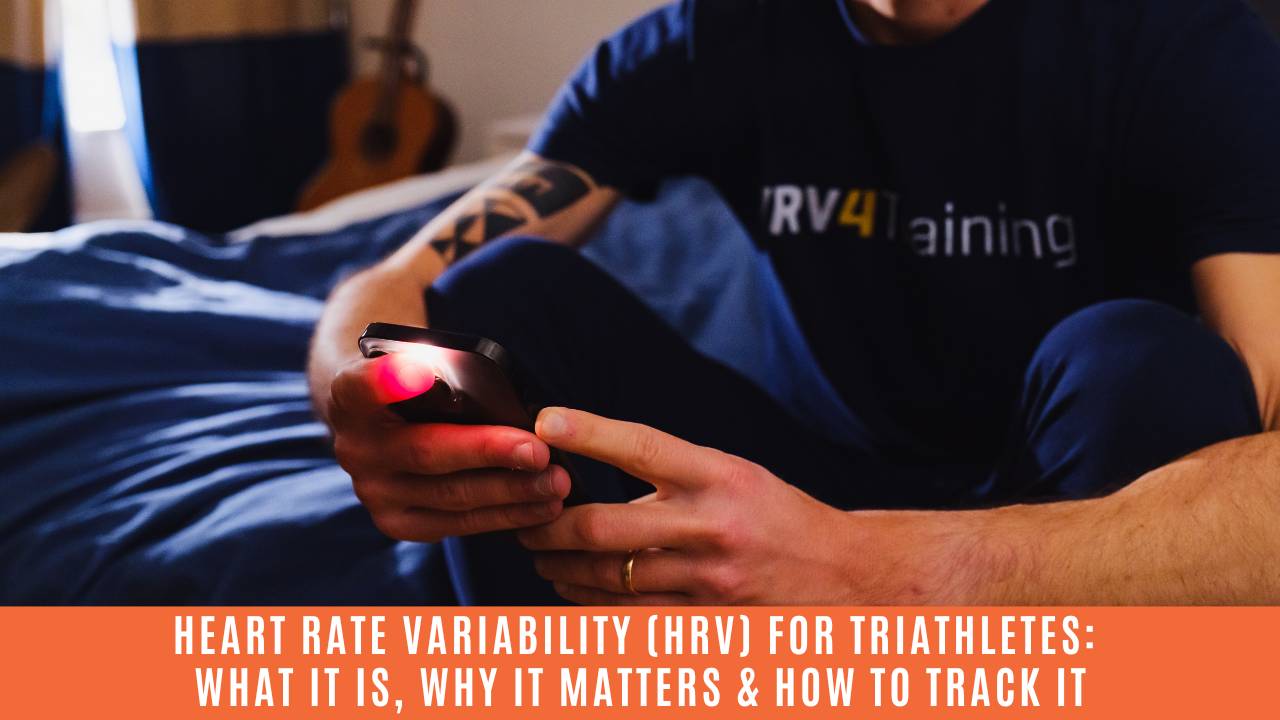Creatine Gummies vs Powder: Which One Actually Works?

Creatine is having a serious moment right now! From bodybuilders to busy mums, we’re all being told to jump on the creatine bandwagon to improve our strength, muscle mass and performance.
And to sweeten the deal, creatine is now available in the form of convenient and tasty gummies
that claim to give us the same muscle boosting powers and benefits as the powder.
But is that actually true?
And should everyone really be taking creatine?
What Exactly Is Creatine?
First things first—why is creatine all the rage? Found naturally in our muscles, creatine helps generate energy for those intense, short bursts of exercise. It's one of the most researched supplements for improving strength, muscle mass, and performance but not everyone needs to jump on the creatine train. It’s not a one size fits all solution and we need to be far more strategic when it comes to supplementing with creatine.
Gummies vs. Powder
The allure of creatine gummies is pretty obvious —they’re convenient an...
The Triathlete’s Guide to Thyroid Nutrition

Nailing your training but can't shift those stubborn kilos? Maybe you’re battling gut issues despite a dialled-in nutrition plan or even dragging yourself through sessions after a solid 8 hours sleep.
If this sounds all too familiar, it might be that your thyroid has been flying under the radar.
As a sports dietitian, I'm seeing more triathletes pushing through these warning signs – constant fatigue, resistant weight, bloating, and mysterious gut problems – not realising there's a tiny butterfly-shaped gland in their neck calling the shots.
Thyroid health isn’t my area of specialty so today I’m joined by Registered Dietitian and Functional Practitioner, Alisha Knicely, to talk about about how this powerful gland affects everything from your race-day performance to your Monday morning motivation.
Diagnosed with an autoimmune thyroid disease in 2017 , Alisha’s drive to understand what was happening in her body was a turning point in her career. She now specialises in Hashimoto’s an...
Heart Rate Variability (HRV) for Triathletes: What It Is, Why It Matters & How to Track It

Do you ever wake up feeling shattered but you just make yourself train hard anyway?
I know it sounds like the thing you should do, but is that actually the best thing for your recovery, your performance and ultimately, your body?
As triathletes, we’re masters at tracking watts, pace, and heart rate but there's another metric that could revolutionise your training decisions. Enter Heart Rate Variability (HRV) – your body's daily report card on recovery and readiness.
Today I'm getting nerdy with Daniel Roland from HRV4Training to learn how tracking your HRV can help you get the most out of your training sessions, understand your recovery and avoid burnout. And all it takes is one minute every morning.
What's HRV and Why Should You Care?
Think of HRV as your body's daily stress barometer. It measures the variation between your heartbeats, giving you a window into your nervous system's state. Low HRV? Your body's in fight-or-flight mode. High HRV? You're recovering well and ready to...
How an Epilepsy Diagnosis Didn’t Hold Aditya Back from Triathlon

From Seizures to Start Lines: The Inspiring Journey of Aditya Mehta
What would you do if you were told you couldn’t swim, drive or safely play sport—because of a medical diagnosis you received at just 4 years old?
For Aditya Mehta, the answer has always been: challenge it.
Diagnosed with epilepsy as a child, Aditya has faced seizures, setbacks and even a coma. But that didn’t stop him from becoming a passionate endurance athlete—completing multiple marathons, learning to swim as an adult, and competing in triathlons across Sprint, Olympic and Half Ironman distances.
His journey is one of grit, mindset, and the power of smart, consistent progress.
From Diagnosis to Determination
Aditya’s early years weren’t easy. Diagnosed with epilepsy at four, he spent much of his childhood managing seizures and the limitations that came with them. But in 2015, something shifted.
Inspired by the energy of the Mumbai Marathon, he signed up for his first half marathon—despite having no running ba...
From Award-Winning Businesswoman to Triathlete: Why Winging It with Nutrition Didn’t Work for Jo Hurley

Meet Jo Hurley — mum of four, award-winning businesswoman, and now, unstoppable triathlete.
She’s gone from leading boardrooms to chasing finish lines, proving that it’s never too late to start something new. But despite her laser-sharp focus and a schedule that allowed her to train like a pro, Jo quickly discovered that her approach to fuelling wasn’t cutting it.
Because let’s be honest — you wouldn’t turn up to a race without training. You wouldn’t line up for an Ironman without a pacing strategy. So why are so many triathletes still winging their nutrition?
When Work Ethic Meets Misguided Fuelling
After selling her successful audit firm and stepping away from the corporate world, Jo found herself in early retirement — with the freedom and flexibility to train properly for the first time in her life.
She threw herself into swim, bike, run with the same determination that built her business. But when it came to fuelling that training? She was completely guessing.
She was piecing...
How to Maximise Your Triathlon Performance in Less Training Time

You’ve got all the gear. Your bike’s dialled. Your training plan is on point. But you’re dragging yourself through every session, and that spark you had at the start of the season? Gone.
You're constantly tired. Recovery is slow. Motivation is slipping.
Or maybe you’re still going through the motions—green boxes in TrainingPeaks, ticking off sessions—but when it comes to your nutrition, you're winging it. Buying every new gel and powder that hits the shelves hoping something sticks.
Sound familiar?
Here’s the hard truth: your nutrition is probably holding you back.
Most triathletes don’t have a solid, structured plan to fuel their training. But when you get it right—when you fuel properly for the right session, recover like a pro, and stop guessing—it changes everything. You’ll train harder, recover faster, and race like the athlete you know you can be.
Here are five red flags your nutrition is letting you down—plus what to do about it.
1. You’re Always Tired
Yes, triathlon tra...
Triathlon with Type 2 Diabetes: Tony Hampton’s Journey to Weight Loss & Blood Sugar Control

Picture this: you're a dedicated triathlete, passionate about your sport and you’ve got a chronic condition that complicates every step of your training.
My guest today is Tony Hampton and I’ll admit, he joined Triathlon Nutrition Academy (TNA) doubting whether I could help him at all. Spoiler alert - I did.
After navigating the complexities of Type 2 diabetes for over 25 years, Tony had tried everything to lose weight and get his blood sugar under control. He experimented with all sorts of diets and training regimens, but inevitably kept crashing when he hit the 2 hour mark.
Since working together in TNA, Tony’s results have been outstanding and in this conversation, we talk about his journey to weight loss, blood sugar control and what he’s learned about fuelling his body properly as a triathlete with type 2 diabetes.
Don’t Be Scared of Carbohydrates
One of the most significant shifts in Tony’s nutrition strategy was his approach to carbohydrates. Previously, he adopted a low-...
Ironman’s New Bike Hydration Rules: What You Need to Know

If you're racing an Ironman this season and you don’t want to be disqualified, I’m sharing some crucial information you need to know. As of 17th of March, the Ironman rules have changed which means that your current hydration set up may now be illegal.
Ironman has introduced new race regulations that limit how much fluid you can carry and trust me, you don't want to be caught off guard by these changes.
Nobody has time to read the massive 34-page document outlining the new guidelines so today I’m breaking down exactly what the new rules mean for you. I’m sharing ways to tweak your hydration strategy and how to avoid penalties while still staying properly hydrated and fueled for peak performance.
Why the New Hydration Rules?
The new limits on how much and where you can carry fluids on your bike are grounded in safety concerns. Excess weight, especially up front, can mess with your bike handling. So, by standardising hydration setups, Ironman aims to promote fair play and improve ri...
Microplastics & Performance: What Every Triathlete Should Know

You're checking all the right boxes to optimise your performance - good fuel, hydration, sleep and recovery. No way would you put anything toxic into your body.
But what if there’s an invisible substance leaking into your system without you even knowing?
I’m talking about microplastics and they're not just floating around in the ocean anymore. They're showing up in places you'd least expect, including your bloodstream.
There’s a sneaky, microscopic invader you're probably overlooking and in this episode, I'm joined by Dr. Heather Leslie, one of the world's leading researchers on microplastics, to shed some light on this topic that's both mind-blowing and crucial for athletes looking to optimise their performance and health.
Dr. Leslie is a renowned researcher specialising in plastic and chemical pollution and gained international recognition for her groundbreaking discovery of microplastics in the human bloodstream. In 2024, she established an independent consulting and researc...
How Masters Triathletes Can Stay Fast After 50 with Joe Friel

In a world obsessed with youth in sports, there's a quiet revolution happening among athletes in their 50s, 60s, 70s and beyond. These masters of endurance aren't just participating – they're demolishing expectations and rewriting the rules of athletic performance. It’s fantastic to see and gives me hope for my future as an ageing athlete.
That makes me sound old when in reality, I’m only just reaching my 40th year. I still feel like I can train in a similar way to what I did in my 20s - going hard with limited recovery. Though, perhaps that isn’t the smartest way to train as I age.
When I recently sat down with Joe Friel, the author behind 'Fast After 50', he revealed insights so powerful they're transforming how we think about ageing in endurance sports. What he shared is more than a training theory – it's a blueprint for athletic longevity that's backed by decades of coaching elite masters athletes.
What follows isn't just advice – it's a complete shift in how we approach athle...


